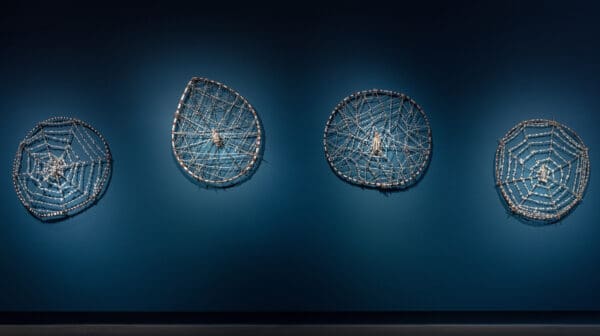
Piercing the veil
A new exhibition at Buxton Contemporary finds a rich complexity in the shadowy terrain between life and death.
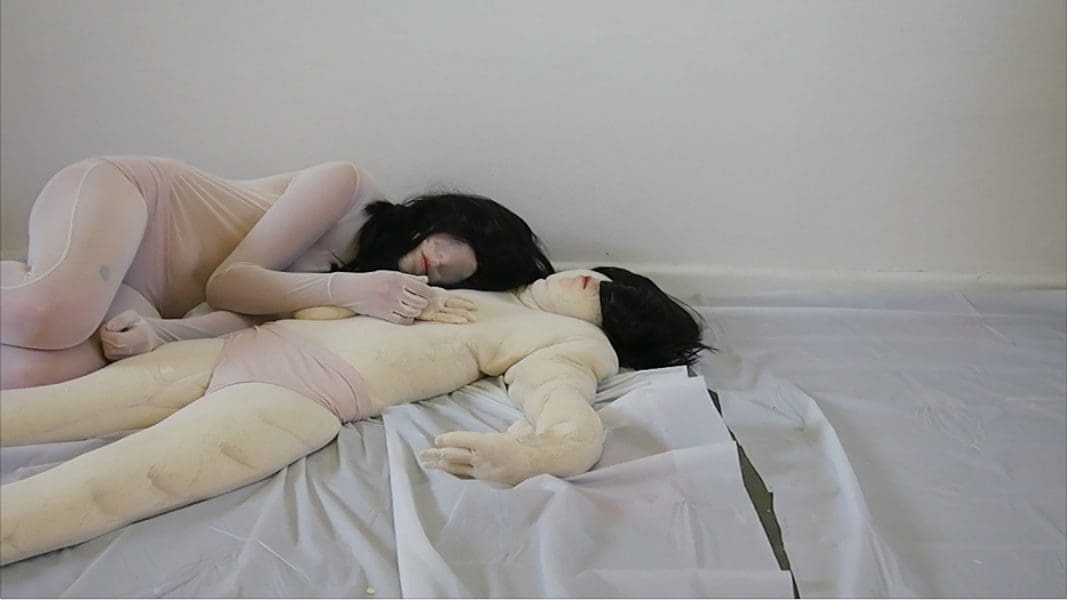
Luisa Hansal, Larinda (still), 2018, single channel video 15:22, Sound design by Nat Pavlovic.
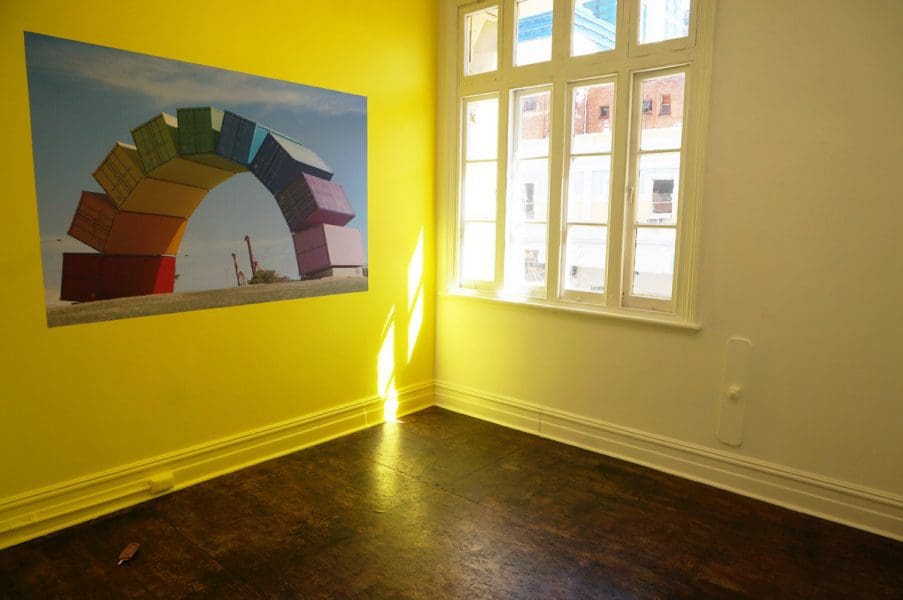
Brent Harrison, You Can’t See Rainbows Looking Down, Installation view, Cool Change Contemporary.
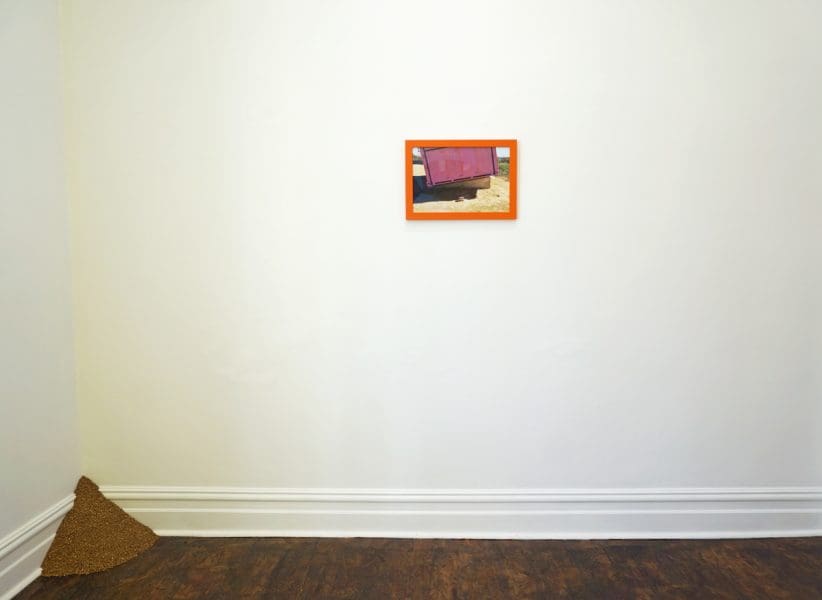
Brent Harrison, You Can’t See Rainbows Looking Down, Installation view, Cool Change Contemporary.
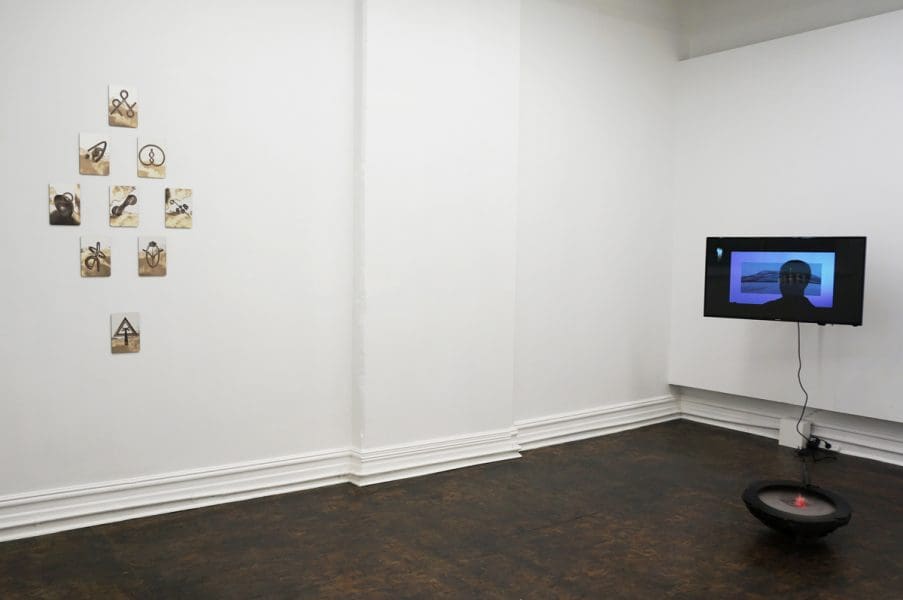
Jesse Bowling & Samuel Jackson, Algorithmic Chicanery – Lightspeed Spirituality (exhibition view)
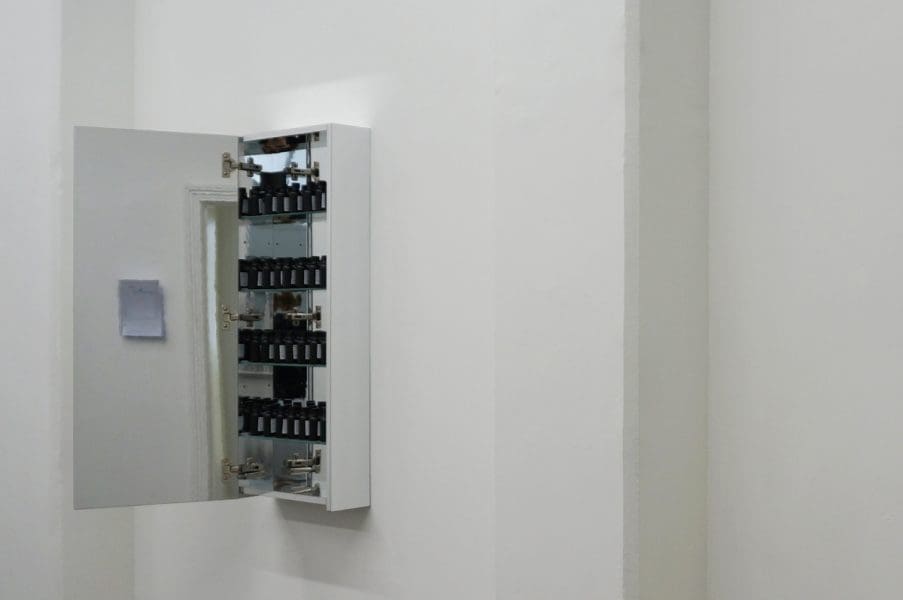
Jesse Bowling, guided by Joelleen Winduss Paye, Emotion Algo. (Tell me how I feel, cause I don’t), 2018, algorithm, selfie, glass bottles, brandy, water, flower essence, mirror cabinet, spiral bound booklet.
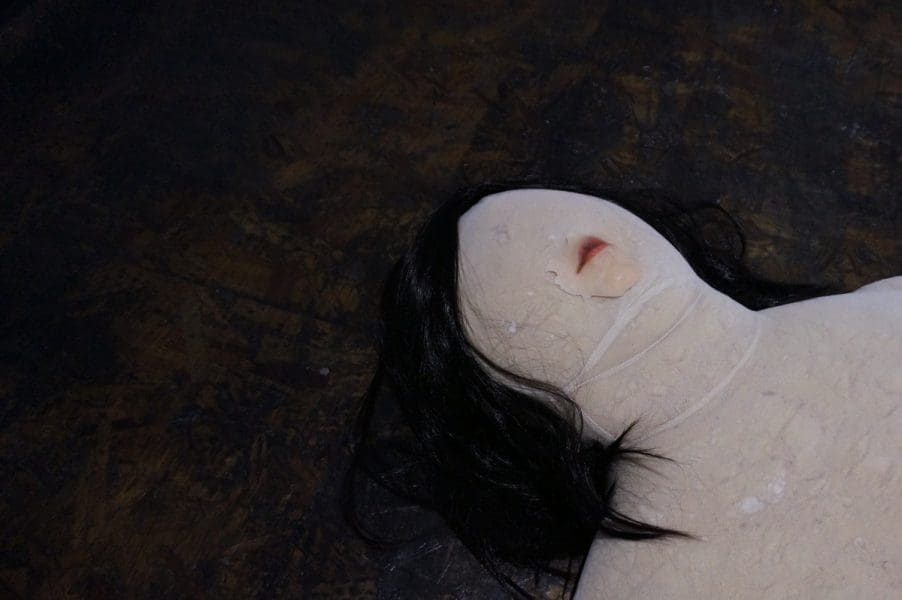
Luisa Hansal, Larinda, 2018, Lycra bodysuit, yeast, flour, water, wax, pigment, synthetic hair and cotton underpants, dimensions variable.
The opening of a new gallery is usually accompanied by the promise of representation, of building up a city’s artistic community. So it is with Cool Change Contemporary, which opened in August and runs on a self-sustaining model. Occupying warren-like apartments above Bon Marché Arcade in the Perth CBD, Cool Change has an already-evident agenda to contrast itself with the sobriety and commercial focus of neighbouring exhibition programs. The space’s seven co-founders are the alumni of Moana ARI, now closed, where they developed a platform for exhibitions that are referential, speculative, abstract and hip.
Three galleries and a project space hold focused solo or collaborative shows, with new waves of artists bumping in on a breakneck monthly cycle. In contrast to this plentiful content, the exhibitions to date might be characterised by their minimalism. Nine Australian, English and New Zealand artists have already exhibited and stylistically, their exhibitions take the form of single propositions, honed to fit the modest scale of each space. Almost uniformly, Cool Change installations have been Spartan, the art objects being anchors (rather than elaborations) for the reactions that fill the liberal negative space around them.
The latest offering in Gallery 1, Algorithmic Chicanery – Lightspeed Spirituality by Kiwi artists Jesse Bowling and Samuel Jackson, reads like a Venn diagram of two practices. In the overlap is a madcap integration of new-age spirituality with computational technology: a spotless mirror-lined cabinet packed with floral remedies blends the witchy with the pharmaceutical; aluminium prints resemble both tarot cards and Windows ‘95 screensaver pipes. In the catalogue, the artists unpack the nature of contemporary mysticism, its homespun construction and the supplication of its consumers.
Brent Harrison’s You Can’t See Rainbows Looking Down fills Gallery 3. Photographic and installation works describe the artist’s disinterest in identifying with two Australian gay icons: Golden Gaytimes and WA artist Marcus Canning’s Rainbow sculpture in Fremantle (an unofficial emblem of the marriage equality ‘Yes’ vote). A popsicle stick on the floor in a puddle of toffee ice cream sets Harrison’s tone of emphatic indifference. The artist lets the shortcomings of these icons reveal themselves by directly reproducing them and, like Daria watching Sick Sad World, using droll asides for titles.
It’s a benevolent project, providing infrastructure for its early-career, so far millennial cohort. The gallery throws its considerable energy behind projects which question what an exhibition should consist of; forgoing conventional materials, exhibiting research as art, asking viewers to read their way into the work and appropriating theory from outside art.
It is also a ‘gallery for artists’ in the other sense: it is not a space for non-artists. One can imagine the abject uncertainty of a casual visitor who is not young, or an artist, or generous in their viewership. The intended (or at least apposite) audience is the initiated: those conversant in novel terminology, idea-fabrication over process-driven exploration, and the omnivorous (and often ironic) appropriation of obscure realms of theory and culture. This is not unhealthy in an industry which often ignores the experimental abandon encouraged in art schools, and is only slowly coming around to art practices formed from many discrete ideas instead of a steady consolidation of oeuvre. Indeed, the cool change afoot in Perth is the presence and growth of a forum for the weird, developing, improvised and subjective.
Gallery 1: Algorithmic Chicanery – Lightspeed Spirituality
Jesse Bowling and Samuel Jackson
Gallery 2: Dead Weight
Luisa Hansal
Gallery 3: You Can’t See Rainbows Looking Down
Brent Harrison
Cool Change Contemporary
1 – 22 September